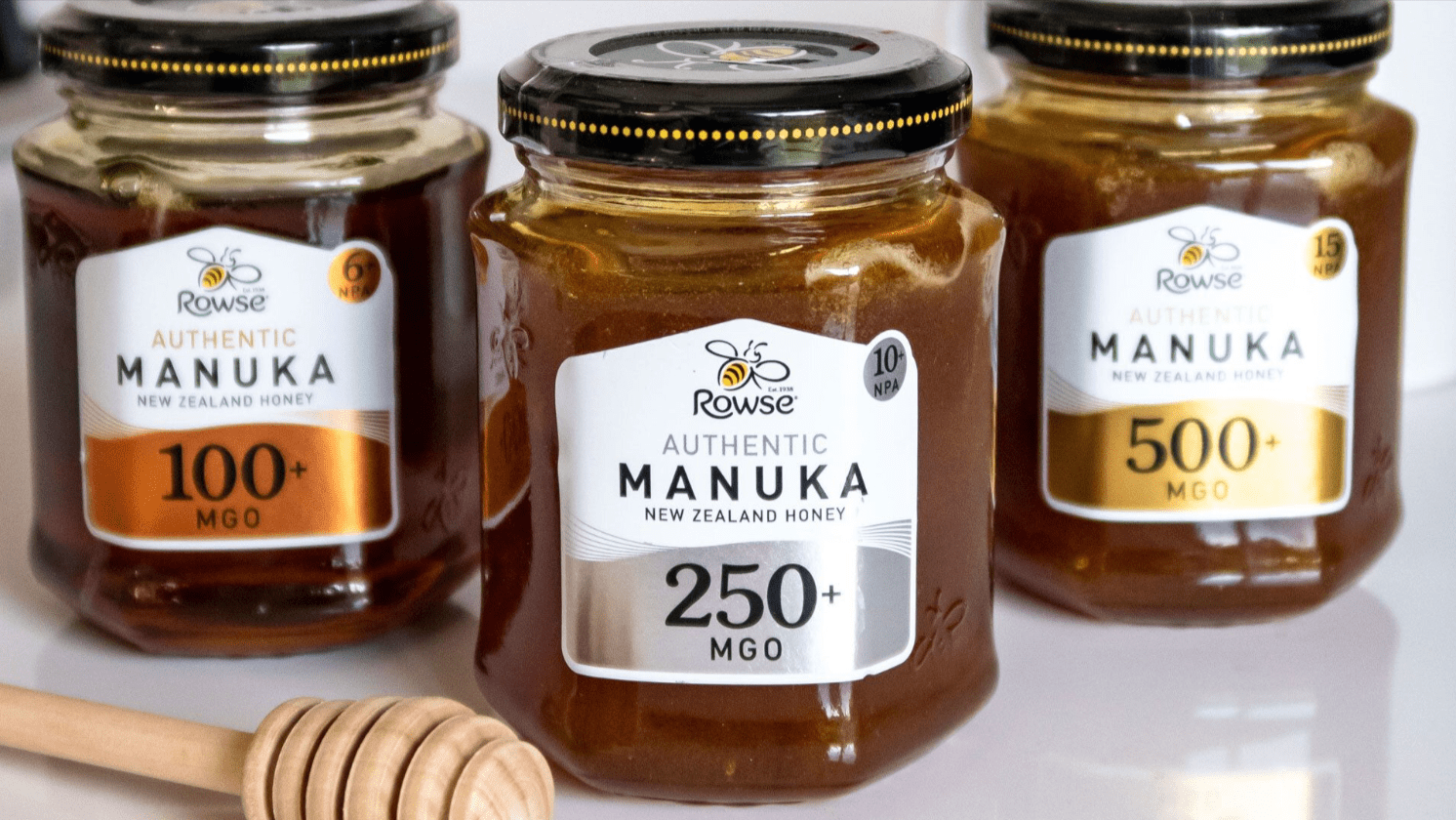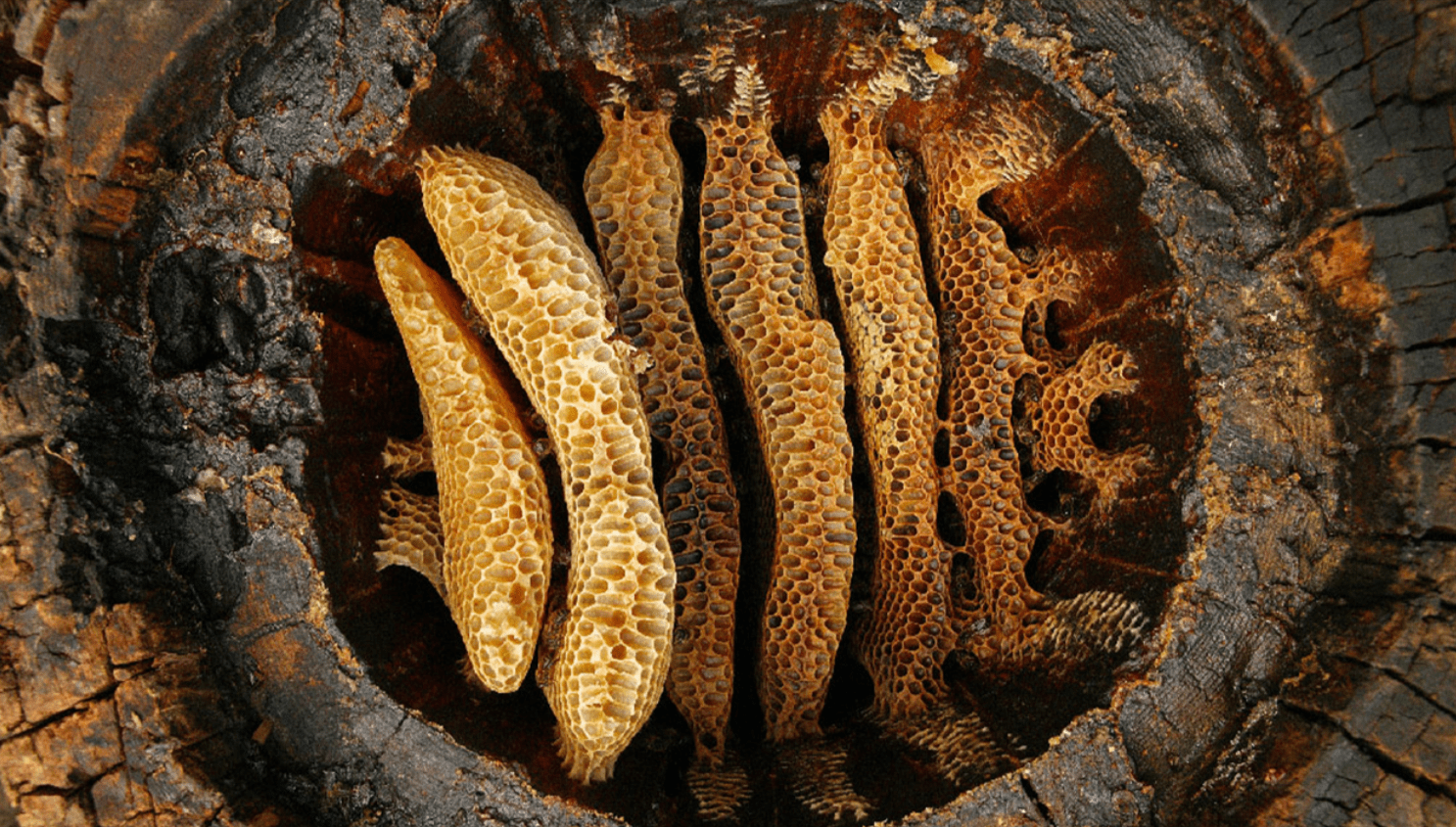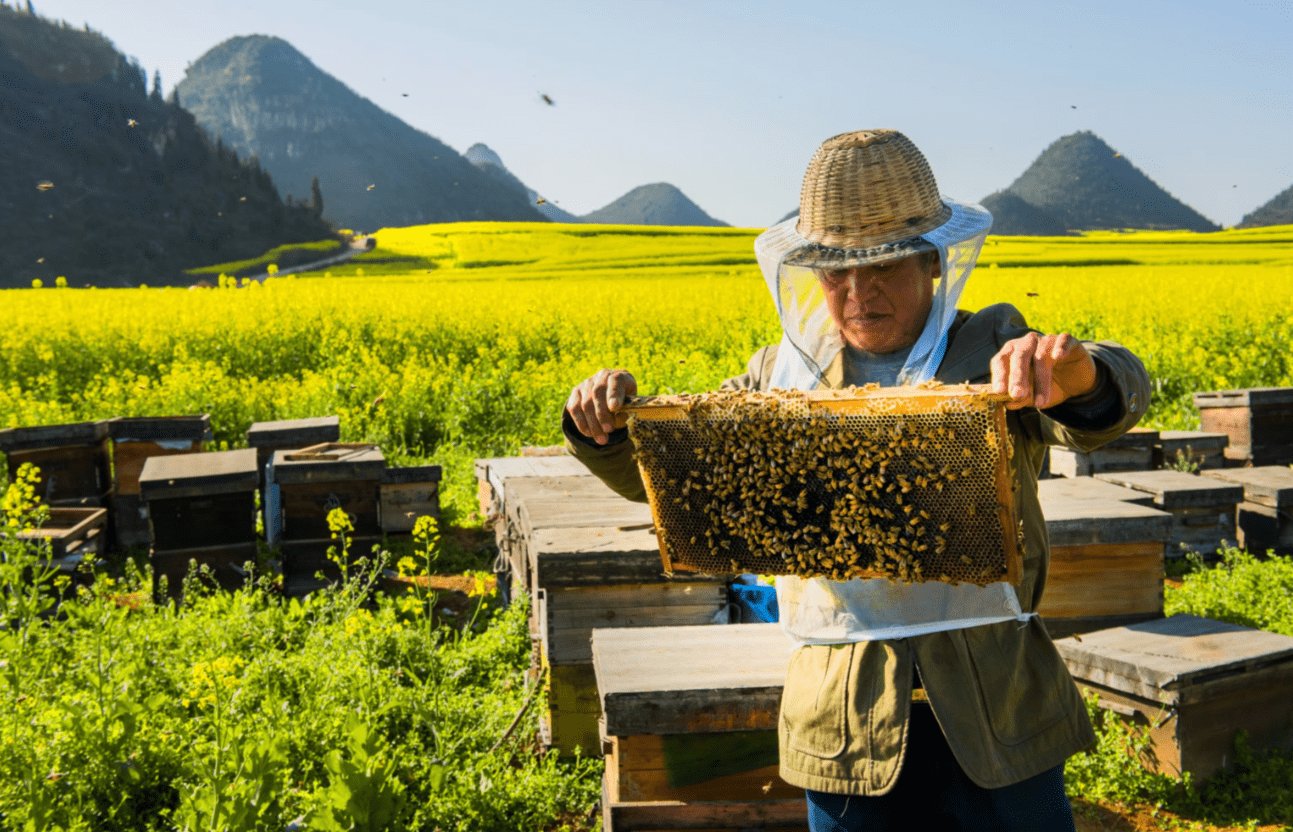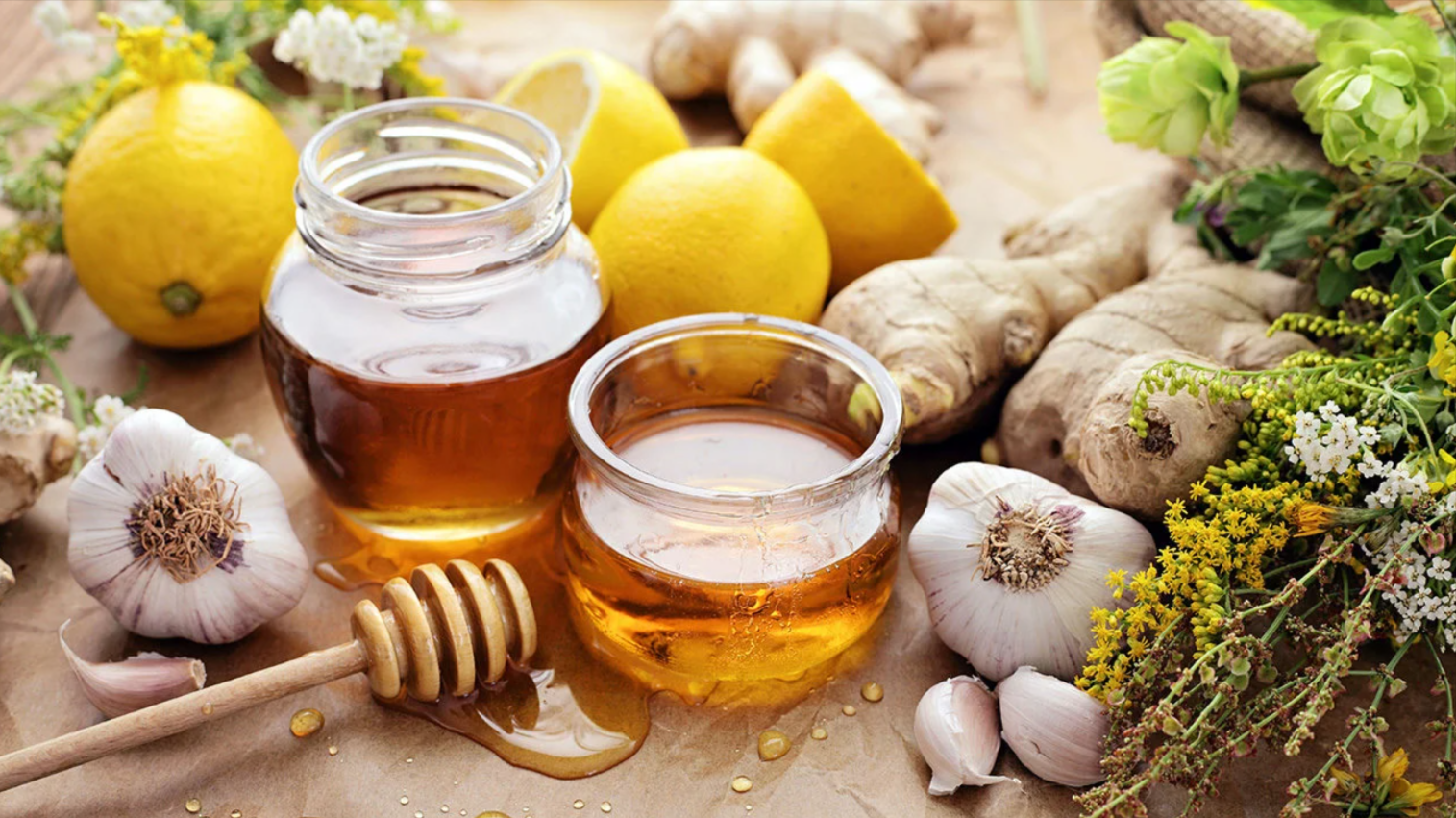What Makes Manuka Honey So Expensive and Special?

Manuka honey has been growing in popularity over the years as its unique properties and health advantages continue to be studied and discovered. At times, it is touted as one of the most expensive honeys in the world, by kilogram. So what is actually special about Manuka honey and why is it so expensive? Collectively, we are here to share the reasons why this honey is so much expensive and what things differentiate it from the rest of the honeys.
What Is Manuka Honey?
Monofloral honey is produced, which is obtained from bee pollination mainly on flowers of what the Manuka plant (Leptospermum scoparium) has to say, the shrub common to New Zealand and some parts of Australia. This is a native shrub with white or pink flowers, producing nectar that most bees love. It is this nectar that later on is turned into a unique type of honey — a reason why Manuka honey is one of the most popular and highly sought after types of honey in the world.
Most honeys are made by bees visiting a big range of flowers, however Manuka is monofloral and from the Manuka bush solely. This imparts a distinctive flavor and medicinal quality not found in other melliferous honey.
Things that Differ Manuka Honey
Various reasons make Manuka honey unique and costly. So, what are those properties that differentiate it out?
1. Antibacterial Properties:
This is the foremost and the most highly valued reason due to which Manuka honey is so prized because of its antibacterial property. Honey has antibacterial properties but Manuka has proven to be of far greater strength. Well, the magic ingredient is a chemical called methylglyoxal (MGO).
MGO: Short form for methylglyoxal, MGO is a naturally-occurring compound in Manuka honey that gives this special honey its unique properties that fight harmful bacteria. MGO Levels in Manuka MGO concentration varies from batch to batch in manuka honey, but the greater the manuka is with respect to its anti-bacterial effect, the more concentrated the levels of MGO.
Studies indicate this honey possesses one-of-a-kind antibacterials consistent with bacteria such as Staphylococcus aureus (MRSA) and a few different antibiotic resistant strains as well. Therefore, it is a potentially valuable resource for medical and therapeutic functions.
2. Unique Manuka Factor (UMF):
The UMF or unique manuka factor of manuka honey determines the potency and quality of honey. In other words, it is the combined activity of three main potentially beneficial compounds: Methylglyoxal (MGO), Dihydroxyacetone (DHA), and Leptosperin, which determine the UMF rating.
As a rule of thumb, a higher UMF indicates a honey with more antibacterial activity. A regular Manuka honey is rated between 5-10 whilst a high end Manuka honey hits the 20 or even above. That is why a honey with a high UMF or MGO rating will set you back a bit more. It enables consumers to more effectively evaluate the honey potency and the spur of honey honey action.
3. Anti-inflammatory Effects:
Manuka honey is likewise useful for curing sore throats, ulcers, and other types of body inflammation due to the anti-inflammatory effect it has. This honey is believed to encourage anti-inflammatory cytokines — proteins — which regulate the body to reduce inflammation.
It has been used for its anti-inflammatory effect internally and externally for conditions such as acne, digestive disorders, and skin irritation.
4. High Nutrient Content:
In addition to its mentioned antibacterial and anti-inflammatory properties, Manuka honey also offers a spectrum of nutrients. It provides various B vitamins (B6, B3, and B5) minerals (calcium, magnesium, potassium) as well as other antioxidants that yield its health benefits.
These micronutrients do not only fight germs and stave off infections but also promote wellness to keep the body healthy and away from deadly diseases. Antioxidant boost: Due the antioxidant properties that Manuka honey contains, It is wonderful for flushing out free radicals our body; A bonus, as it can aid in lessening the oxidative stress in order to work towards living longer.
What makes manuka honey so expensive?
Now that we are having a glimpse on the special composition of Manuka honey, let us focus on the reason why it is so high priced. This honey has many reasons for this price, and thus helps to position the original honey in the luxury sector.
1. Geographic Restrictions:
Almost solely created in New Zealand and a few areas of Australia that the Manuka grows. The flowering period for manuka bush is brief each year; typically, between September and February. Because of the time frame that Manuka can be harvested, the production of it is limited and, as a result, makes it a highly-prized product.
This honey is very rare in its form, and this is one of the primary factors for it being so costly. Manuka honey has been gaining worldwide popularity but its naturally low availability makes it quite expensive.
2. High Production Process turns out to a need for human labour
This is a very labour intensive process when it comes to harvesting and production of Manuka honey. Manuka needs bees, and only bees — which means that they can only pollinate the flower when it is flowering and only if they have to fly to a particular location. Beekeepers need to check the hives from time to time so that they are always in their optimal state to produce honey.
Manuka honey must also be made in a particular way for it to contain the unique properties that it does. They also were meant to very gently process or filter the honey — because it most likely contains beneficial elements such as MGO. This also means that beekeepers have to perform multiple tests and verifications on the honey in order to ensure its compliance to the UMF standards. This is of course a tedious — hence expensive — process, and worse, we have to do it.
3. Quality checks Gold standard & Certification
As already mentioned, Manuka honey improves based on its UMF rating. There's a thorough certification process that producers have to go through to hit these high notes for the honey. It is then tested for markers (ie levels of MGO) and only if it meets the parameters, is it sold as genuine Manuka honey. This process is overseen by organizations such as the UMF Honey Association, which ensures that consumers are buying the real deal, pure manuka honey of the highest quality.
Such small measurement of certification and testing takes extra time, assets and cash out lay, which increases the price of manuka honey. These credentials bring no scope of doubt for their authenticity and potency of honey in these bottles.
4. Global Demand:
The demand for Manuka honey has grown tremendously in the last few years — due in large part to people becoming increasingly aware of the many health benefits it contains! The rest of its growing fame comes when these products latch onto everyone from celebs to wellness buffs to practitioners of alternative medicine, and the media supply the stories. Consequently about 80 Manuka honey demand is outstripping supply which has pushed the price even higher.
Besides being used as a food product, manuka honey is marketed as natural medicine for a variety of health issues including digestive disorders, wounds, and skin care. Their popularity, and as such, drives the global market for Manuka honey, as it also drives a high selling price.
5. Susceptibility to exploit and misdeed:-
Due to the great worth of Manuka honey, counterfeit or adulterated honey is flooding the market. Due to its price, some producers mix it with another, less expensive honeys, consequently, its quality decreases and health effect is lower. As a result, consumers might be willing to spend more for certified, real Manuka honey, knowing that they are receiving a high-quality and pure product.
Benefits Of Manuka Honey For Your Health
As mentioned earlier, manuka honey is more than a sweet treat. And there s a reason why because it is packed with few health benefits and it could be a huge part of your daily health routine.
- Supports Digestion: Manuka honey can help soothe digestive issues, including boost thickness, ulcers, and IBS (irritable bowel syndrome). It has antimicrobial features that may assist in controlling intestinal bacteria.
- Best for Skin: Since it hydrates and repairs the damaged skin, it is used in a lot of skin care products. Acne, eczema, and other skin conditions are some examples of what it can also be used for.
- Combats Infections: Organic Manuka honey has a natural capability to fight off infections and its antimicrobial properties make it a natural flu and cold buster.
- Wound Healing — For hundreds of years, Manuka honey has been used for treating wounds due to its own unique anti-bacterial properties and healing properties.
Conclusion
Manuka honey is one of the rarest and most valuable honey types on the planet. Manuka honey is more expensive than other honey due to its unique antibacterial, anti-inflammatory, and healing properties, its small geographic range, and the labor-intensive nature of producing it. Although it costs more than other type of honey, many people find the health benefits and the therapeutic properties worth your money.




